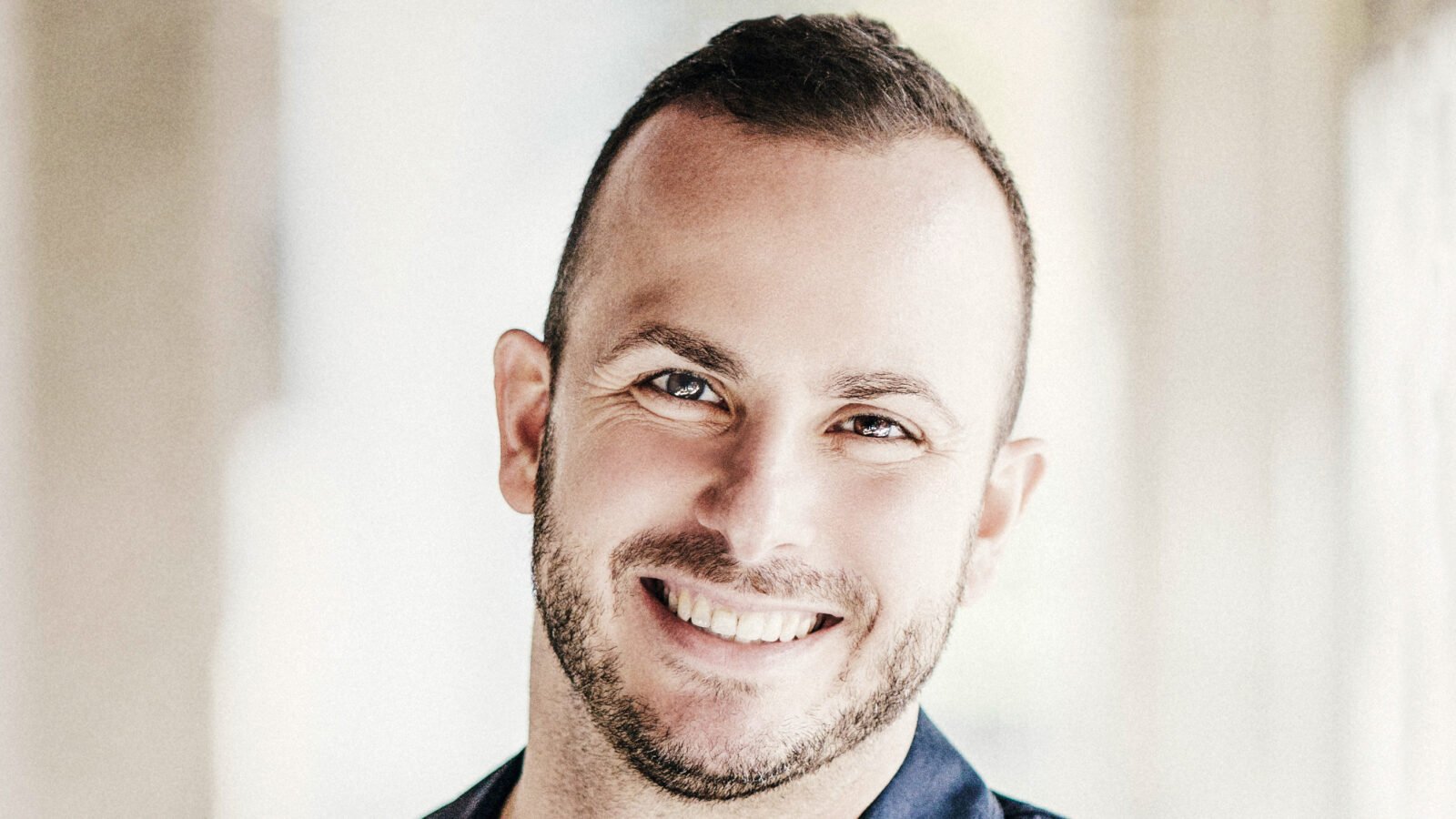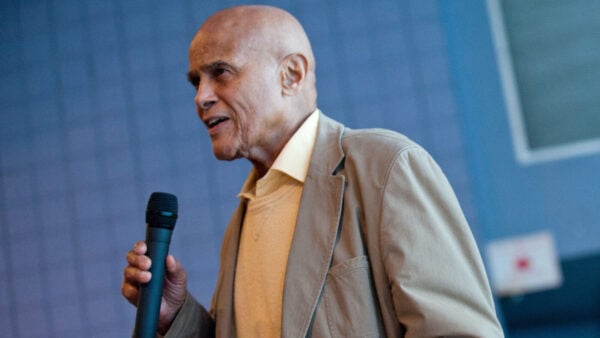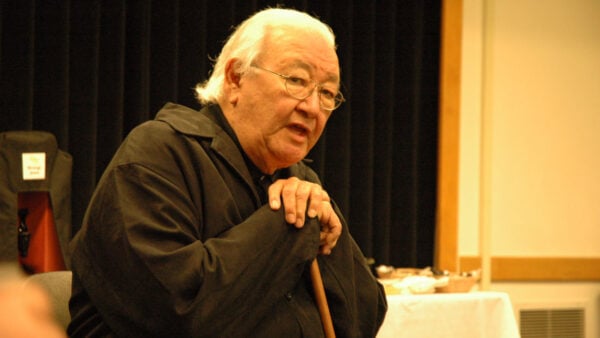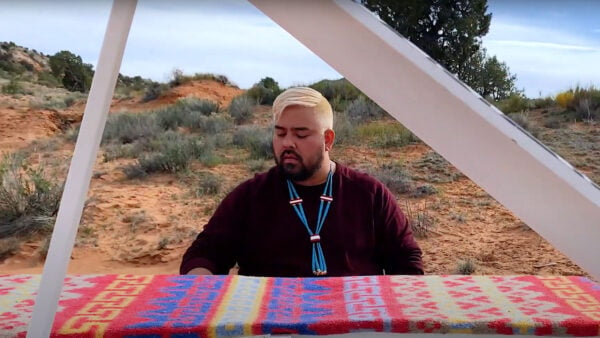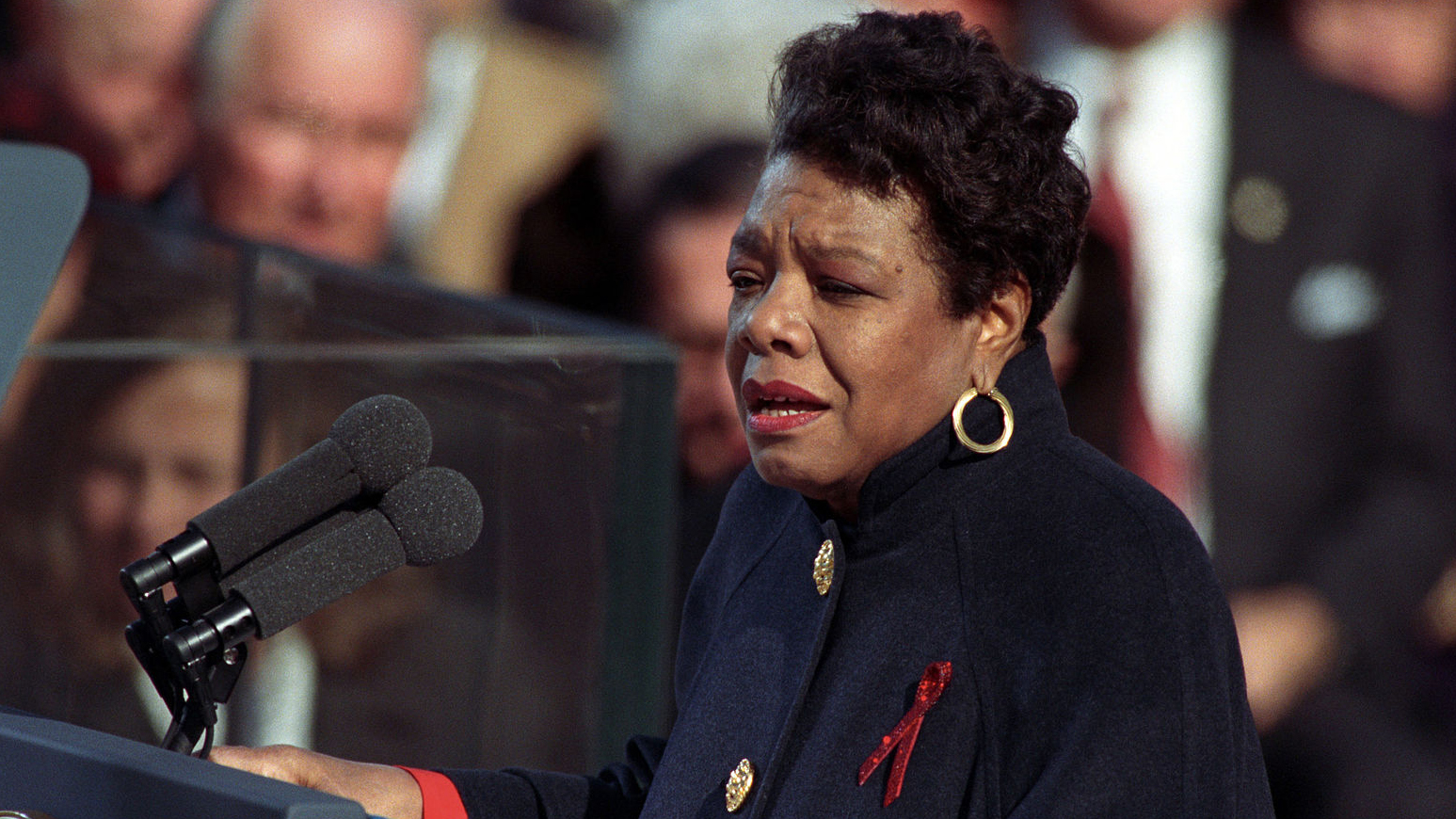
Maya Angelou reciting her poem “On the Pulse of Morning” at President Bill Clinton’s inauguration in 1993. (Photo: Clinton Library)
Layla June West wrote in the introduction to the Studs Terkel Radio Archive’s African-American History & Culture Section, “Terkel’s archive shows that people, famous or not, act and react with the world around them in the business of love, activism, art, and everything in between. By capturing archiving this fullness, he expands the American collective memory and captures the diversity of the African American milieu.” In honor of African American History Month, here are just a few of those voices from the Studs Terkel Radio Archive.
Lorraine Hansberry on A Raisin in the Sun
A Raisin in the Sun is one of the most acclaimed pieces of African-American art in the 20th century, and Studs’ 1959 conversation with its author-playwright Lorraine Hansberry is one of the most enlightening in our archive, as Hansberry and Terkel explore the play’s conception, themes, and discuss why, in Hansberry’s view, art is one of the few places in American culture that the truth about racism can be told.
Sidney Poitier on his role in The Defiant Ones
As the first African American to win an Academy Award for Best Actor for Lilies of the Field and the star of films such as Blackboard Jungle, In the Heat of the Night, and Guess Who’s Coming to Dinner, Sidney Poitier is a towering figure of both African-American and Cinema history. In 1959, Poitier sat down with Studs to discuss his role in Stanley Kramer’s The Defiant Ones, as well as how racial typecasting operates in Hollywood.
Dr. Martin Luther King Jr. on his “I Have a Dream” speech
Recorded on the floor of gospel singer Mahalia Jackson’s living room, this riveting dialogue between Studs and Dr. Martin Luther King Jr. is one of the gems of our archive. First aired in October 1964, Studs probes the ideas and philosophical inspirations behind both Dr. King’s most famous address and his activism overall.
Eartha Kitt on her musical career and performance style
Eartha Kitt was one of the most distinctive musical performers of her era, as well as a long-time activist in anti-war, civil rights, and LGBTQ rights causes. In 1962, at the height of her career, she talked to Studs Terkel about her musical career and influences, her performance style, and the impact her mother’s death had on her.
Myra Alexander on Northern racism and the March on Washington
While Studs conducted plenty of interviews with famous figures, it was often his conversations with ordinary people that he cherished the most. Studs’ 1964 talk with Myra Alexander, who fled the Jim Crow South for Chicago as a child, is just one such conversation. Alexander, who participated in the March on Washington and Dr. Martin Luther King Jr’s push for fair housing in Chicago, details the intense racism of northern cities-particularly in regards to housing and employment-that propelled her involvement in the Civil Rights Movement.
Muhammad Ali on his childhood, conversion to Islam, and opposition to the Vietnam War
Though not as combative as Ali vs. Fraiser or Ali vs. Liston, Ali vs. Terkel was certainly an entertaining bout, as Studs spoke with the Greatest of All Time about his childhood, his boxing career, his conversion to Islam, and his monumental decision to refuse to fight in the Vietnam War as a conscientious objector.
Maya Angelou on the American South
In 1979, the poet and civil rights activist Maya Angelou sat down with Studs and journalist Tom Wicker. What followed was a wide-ranging discussion of the American South, its culture, its history, and its deep interrelation with the history of Black people in the United States.
Wynton Marsalis on his musical upbringing
Wynton Marsalis is one of the most exciting figures in contemporary jazz: he is the only musician to receive a Grammy award in classical and jazz categories in the same year and was the first jazz artist to win a Pulitzer Prize for music. In 1985, he discussed his musical influences and history in a brief but engaging conversation with Studs.
Harry Belafonte on the contributions of Jazz and Folk to American culture
As well known for his musical career as for his longstanding involvement in civil rights and anti-war causes, Harry Belafonte shared a fascinating discussion of African American music and its role both in the African American community and the country as a whole. “It’s a social center,” Belafonte told Studs, “It is the area in which the people meet to exchange and communicate with one another on all levels, whether in a happy social sense or in the highly spiritual sense.”
Studs Terkel at the Selma to Montgomery March in 1965
Studs was on the ground in Selma, Alabama in 1965 for the historic Selma to Montgomery March, interviewing local white and black residents as well as marchers from across the country. These conversations produce a valuable oral history of one of the pivotal moments in the Civil Rights Movement, and what it meant to the people who were there. “I want everything to come out alright,” one of the marchers told Studs, “We want freedom.”
Dr. John Hope Franklin on the Civil War and Reconstruction
Studs’ 1966 conversation with Dr. John Hope Franklin, an acclaimed historian of African-American history, is an illuminating and entertaining journey through the history of the Civil War and Reconstruction, touching on the service of African-Americans in the Union Army, the passage of the 13th, 14th, and 15th amendments, the Freedman’s Bureau, the emergence of the Ku Klux Klan and much more.
This story was first published January 31, 2020.

